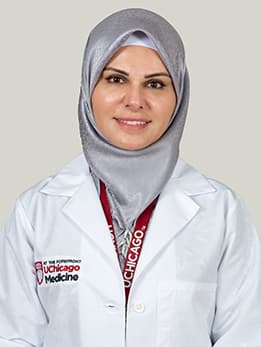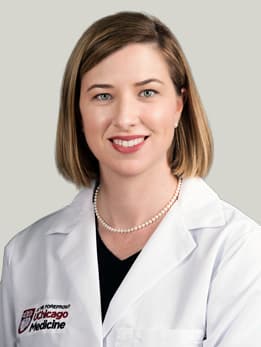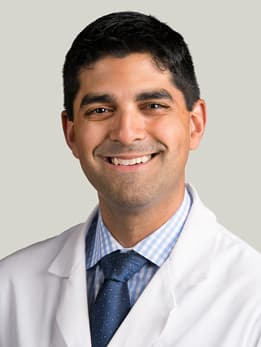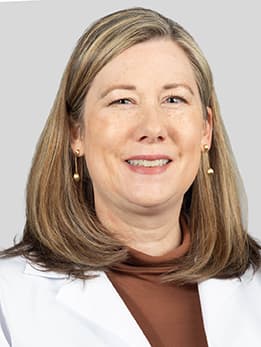Chicagoland Children’s Health Alliance Bariatric Clinic: a systematic approach to care

Treating children who are diagnosed as obese and overweight, our experts at the Chicagoland Children’s Health Alliance Bariatric Clinic provide a systematic and gentle approach to pediatric care. Our goal is to help children grow into healthy adults and prevent or control chronic diseases. We offer family-centered, collaborative care that encourages families to develop achievable goals for every member.
Childhood obesity rates have steadily increased over the past two decades. In some of our own Chicago-area communities, more than 50% of children are overweight or obese, a significantly higher rate than the national average of a little over 20%.
It’s imperative for care providers to offer holistic treatment to care for children without damaging their self-image or setting them up for a dysfunctional relationship with food and exercise.
Because every child is different, we assess the individual needs of each patient and tailor their care plan accordingly. We offer a spectrum of care ranging from lifestyle modifications to weight-loss surgery when clinically indicated to be the appropriate treatment. Other comprehensive pediatric medical weight-loss clinics exist across our region, but they lack options for pediatric bariatric surgery.
We focus on health and behavioral changes rather than the number on a scale.
Children living in larger bodies can experience stigma and bullying surrounding their weight. We strive to address issues in a way that lets children know they’re not at fault for a health problem. Many children living on Chicago’s South Side live in food deserts and lack easy access to nutritional care. These are factors that can contribute the childhood obesity cases we see and treat.
We avoid using the phrase “normal” when it comes to weight, because there is no such thing as a “normal” weight. We also stress that there is no ideal body shape. It’s imperative for kids not to think of their body's shape or size as an individual failure.
Children in the 85th to 95th percentile of the body mass index (BMI) are considered clinically overweight, while those above the 95th percentile are considered obese. While BMI is not necessarily an indicator of health (some people with high BMIs live perfectly healthy lives), it has a correlation to an increased risk of developing significant health issues such as high blood pressure, type 2 diabetes and nonalcoholic fatty liver disease.
Children in the overweight category don’t qualify for surgeries, but their care teams often recommend other medical interventions such as diet, exercise and medications. Children diagnosed as obese sometimes qualify for surgeries.
In our clinic, your child may see a pediatric hepatologist or endocrinologist, dietitian, social workers and other specialists for initial diagnoses, medical management, healthy eating/living plans, emotional support and access to community resources (such as opportunities for fun types of group exercise).
Prior to any time of weight-related surgery, children also receive psychological evaluations to determine if they are ready for surgery and to assess potential mental health-related problems such as eating disorders, mood disorders or trauma.
We focus on health and behavioral changes rather than the number on a scale.
Data suggest that as children grow, medical intervention for obesity becomes less effective. Timing is everything when it comes to helping children and families make changes to achieve happier, healthier lifestyles.
That’s why we’ve brought together our services from the pediatric weight-loss program at the University of Chicago Medicine Comer Children’s Hospital and the Healthy Active Living Program at Advocate Children’s Hospital to create the Chicagoland Children’s Health Alliance Bariatric Clinic.
If you are concerned about the weight of a patient under age 9, you can refer them to one of our health and wellness programs (Comer Children’s Hospital | Advocate Children’s Hospital). Children over the age of 9 can be referred to our specialized bariatric clinic. Those with comorbidities can be referred by subspecialist(s) or their pediatrician.
Our consults are virtual, so we are able to remotely screen patients and decide whether they should be seen and managed from a medical perspective.
If you’d like to discuss the program further, email (773) 702-6175.

Comer Children's Pediatric Weight-Loss Program
Our experienced clinicians provide the support and expertise your family needs to help your child or teenager obtain a healthy weight.
Learn more about our weight-loss program



